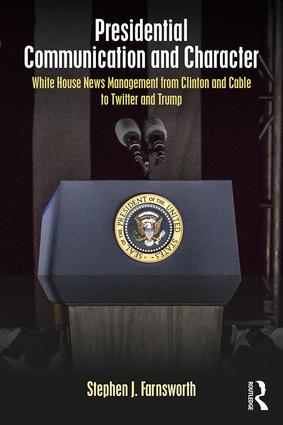
Stephen Farnsworth, professor of political science and director of the University of Mary Washington’s Center for Leadership and Media Studies, is author of a new book,
Presidential Communication and Character: White House News Management from Clinton and Cable to Twitter and Trump, published by Routledge Press.
From the Publisher: This book traces the evolution of White House news management during America’s changing media environment over the past two decades. Comparing and contrasting the communication strategies of Bill Clinton, George W. Bush, Barack Obama, and Donald Trump, it demonstrates the difficulty that all presidents have in controlling their messages despite a seemingly endless array of new media outlets and the great advantages of the office. That difficulty is compounded by new media’s amplification of presidential character traits for good or ill. Facebook, Twitter, and YouTube notwithstanding, presidential power still resides in the “power to persuade,” and that task remains a steep challenge.
The book also looks at the media strategies of candidates during the 2016 presidential campaign and covers the early phase of the Trump administration, the first true Twitter presidency.
More information
C-Span interview on "Presidential Communication and Character"





